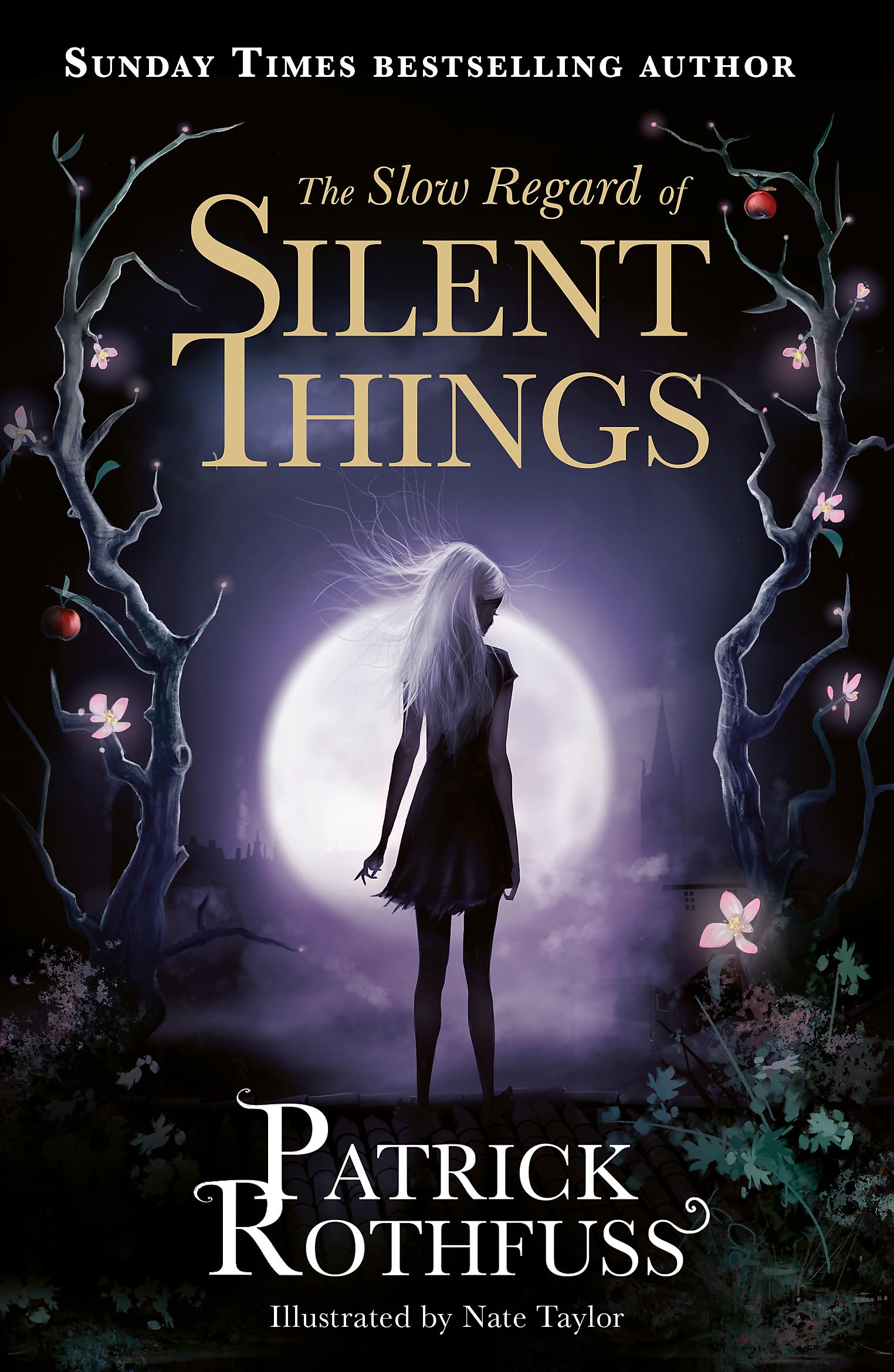The Slow Regard of Silent Things
June 15, 2025

The book The Slow Regard of Silent Things is part of the Kingkiller Chronicle series. Though I haven’t read any other books in the series besides this one—and this book is not the first entry—it feels like it can be read on its own. Still, I can’t say that for certain.
The story is about a girl who lives beneath a university, in a hidden network of old rooms and tunnels. She maintains the pipes that run through the tunnels and keeps the rooms clean and organized. This is not a high-stakes story; it’s more laid back. If it were an anime, I might call it slice of life, though that label doesn’t quite fit either—it has a certain surreal quality. The girl never speaks a word to anyone, and her actions are often strange.
The writing style in this book is quite unique. It uses a lot of short sentences—you rarely see one that runs longer than a dozen words, and most are abruptly ended with a full stop. I think this is intentional, meant to reinforce the idea that there isn’t one big, important event happening, but rather many small things. And by making all the sentences equally short, it suggests that all these little things hold equal value.
This is my interpretation of the story: to me, it’s about control and desire. In the spirit of the ancient Greek Cynics, the girl lives frugally, never taking more than she needs, striving to be satisfied with simple things. We see this multiple times throughout the story—she has the opportunity to take more than she needs, but when the desire arises, she reprimands herself.
It’s also in line with the Stoic tradition in two key ways. First, it follows the theorem of control: only caring about things within our direct power and disregarding everything else. For example, even when a day arrives that she dislikes, she faces it without despair, because it’s outside her control. Second, there’s the idea that things are guided by a rational principle—the logos—which gives everything its purpose and determines fate. The girl believes that everything has a role, even mundane everyday objects, and she believes she herself has a clear purpose: to take care of things. Although she occasionally questions this purpose, she remains steadfast in her conviction.
The last influence I want to mention is the Buddhist one. Throughout the book, there’s a recurring theme that “wanting is bad.” While this could be explained using Stoicism—i.e., not desiring things outside one’s control—the book goes further, suggesting that all desire not directly related to one’s personal purpose is harmful. This closely resembles Buddhist doctrine or Schopenhauer’s philosophy, both of which argue that the root of all suffering is desire. In keeping with this, the book emphasizes the appreciation of small things, the quiet joy of doing basic tasks, no matter how boring or gruesome they may seem, and doing them with care and enjoyment.
I’m divided on this book. Although I appreciate what it’s trying to do—and I genuinely feel it shows a great deal of creativity and human authenticity—it personally felt a bit boring to me. If the message was really what I think it was, the book could have been substantially shortened and still conveyed the same idea.
Furthermore, if the book was also trying to provide a cozy, slice-of-life experience, that aspect didn’t work for me. I think that only works if the reader is already deeply invested in the character and wants to see them in everyday situations. You need to hook the reader first before you can focus entirely on atmosphere (though I admit, atmosphere itself can sometimes be a hook). But this should be taken with a grain of salt, as I haven’t read the previous books in the series, where our protagonist has been already introduced.
